Significance of Business Valuation for Companies
Page Contents
Significance of Business Valuation for Companies

Every business owner should ask yourself one question. “What is the worth of your company in the open market?”
- Business Valuation is necessary to know about your company’s actual value or Fair value as it helps to understand, what your situation is? and where you stand in terms of value, growth, and business perspective. It is crucial for the funding activities that involve applying for a loan, mergers, and acquisitions (M&As), for selling their business, and regulatory requirements for voluntary purposes.
- As there is a lack of conviction spread over the global markets and raising consciousness for the importance of independent valuations due to rapid globalization as it initiated both scopes and challenges for businesses. Business valuation is raising but at the same moment, it is challenging due to its complications because it depends on various factors like market, management, capital, objectives and so on.
- To keep it short: Business Valuation is a practice done under the guidance of an expert to estimate the ‘economic worth’ of a business. It is determined by the business owners with an impartial point of view about their business existence in the market or where it is going to survive in the future or not, business valuation is determined with the consideration of Companies business Model, Factual evidence, and many more external factors.
KEY FACT:
- Valuation is a hybrid of art and science (here ‘art’ is professional judgment and ‘science’ refers to statistics) as it depends on two things Price and Value, which differ with respect to the person, time, and purpose behind the valuation.
- What we understand about business valuation is that it is only beneficial for us in acquiring or selling your business but it also plays a crucial role during the problems regarding natural calamities, disability, divorce, death and also resolves tax issues.
- Business-valuation’s requirements are endless like gifting or donating company stocks for any charitable contribution, settling the shareholder’s dispute, or transforming into an S-corporation, whether you are planning for a partnership, or preparing a shareholder agreement.
Business-Valuations Helps you to Move in the Desired Direction
- Business owners face too many difficulties and probably feel lost at some point in time, but at that particular moment, a significant business valuation will give a clear idea about the company’s problem and where you need improvement to enhance their financial worth.
- Business-owners have no ideas about how to improve their results at the same time while they conduct a business valuation. A substantial business valuation can help you to show which areas need improvement, it is useful for strategic decisions to enhance your business and helpful for companies of different sizes as it provides distinct values of your ownership and business worth.
Which type of things to be aware when it comes to business valuation?
Fairs Market Value-
The price at which the property would change hands between the willing buyers and seller, and the people involved in the deals are not under any pressure to sell or buy the property and have their own reasons to make their deals.
Generally, it is used for the different situations:
- Transferring the inheritance to their successors.
- Income Tax Departments and many more transactions like this.
- Selling business in the open market or an auction.
Some more objectives of business valuation are to help to make the deal at a value between the buyer and seller who have full knowledge of facts. To get the most corrective Fair market value, a company needs to prepare an analysis of business tax returns for 5 years, conduct employee valuation & the average or weighted average values determined with various valuation approaches.
Book Value-
- Book value is similar to the balance sheet assets irrespective consideration of liabilities. It is better to understand with an example if your company’s total assets are $50 million, and liabilities are $40 million, then the book of your company will be $10 million. A secondary approach to valuation that tests the valuation of the company having significant assets, like inventory, receivables, equipment, or property.
Valuation Methods-
- If a company is having expensive assets and low profits, then it is very difficult to provide an accurate indication of Fair market value of your business valuation.
- When completing a valuation, three business valuation methodologies are generally considered. Aside from that, based on your business model, you can use a variety of business valuation approaches. To arrive at a value conclusion, the valuer can only employ one approach.
=> Basically, three main approaches for Business Valuation are:
- Assets-based Approach (NAV): Evaluating intangible assets that a business possesses. It cannot be recognized as an accurate indication of fair business value. Net asset value (NAV) is considered workable for companies that have matured or declining growth cycles, including investment and property companies.
- Income-based Approach: The business is valued of future earnings or cash flows with the help of present value. It is possible by projecting the business’s earnings and adjusting them for changes in taxes, cost structure, growth rates & similar. This method is generally used in value-based companies like engineering and healthcare companies etc.
- Market-based approach: if a company’s valuation is found by comparing the subject, assets, or company based on selling similar types of assets. It is important at a time when too much data is available on comparable transactions. This method of approach is relatively easy to use in publicly traded shares or residential real estate.
Business valuation- India’s Perspective
- Business valuation plays a major role in dispute resolution in merger & acquisition (M&A) as it includes an element of subjectivity that is challenged often.
- The practice of valuation doesn’t have many regulators prescribed standards the private and unlisted companies. So among these types of companies, there is a lack of consistency regarding valuation and in many cases, valuation is a universally accepted practice. There are several problems like limited judicial guidance, absence of stringent course of action, and there is No statutory board for regulating the valuation process.
The Bottom Line!
- Business valuation’s main objective is to find the most important value-generating areas of your business. You just need to focus on the critical value-generating areas of your business to grow your worth. Each critical area of the business can be given more focus for enhancement of its value and can generate more revenue.
- For any final deal negotiation of the company there should be different mindsets and business intentions that are the key points. Business valuation not only allows identifying but also helps to settle down all possible problems for future deal negotiations.
Valuation Report from an IBBI Registered Valuer is required for various Regulatory Purposes Such as:
- Valuation under Companies Act, 2013 (M&A, Preferential allotment, Private Placement, Sweat Equity etc.);
- A Valuation under Insolvency & Bankruptcy Code;
- Valuation under SEBI Regulations(ICDR etc.);
- A Valuation for Financial reporting under IND AS;
Requirement of Reforms under the Companies Act, 2013
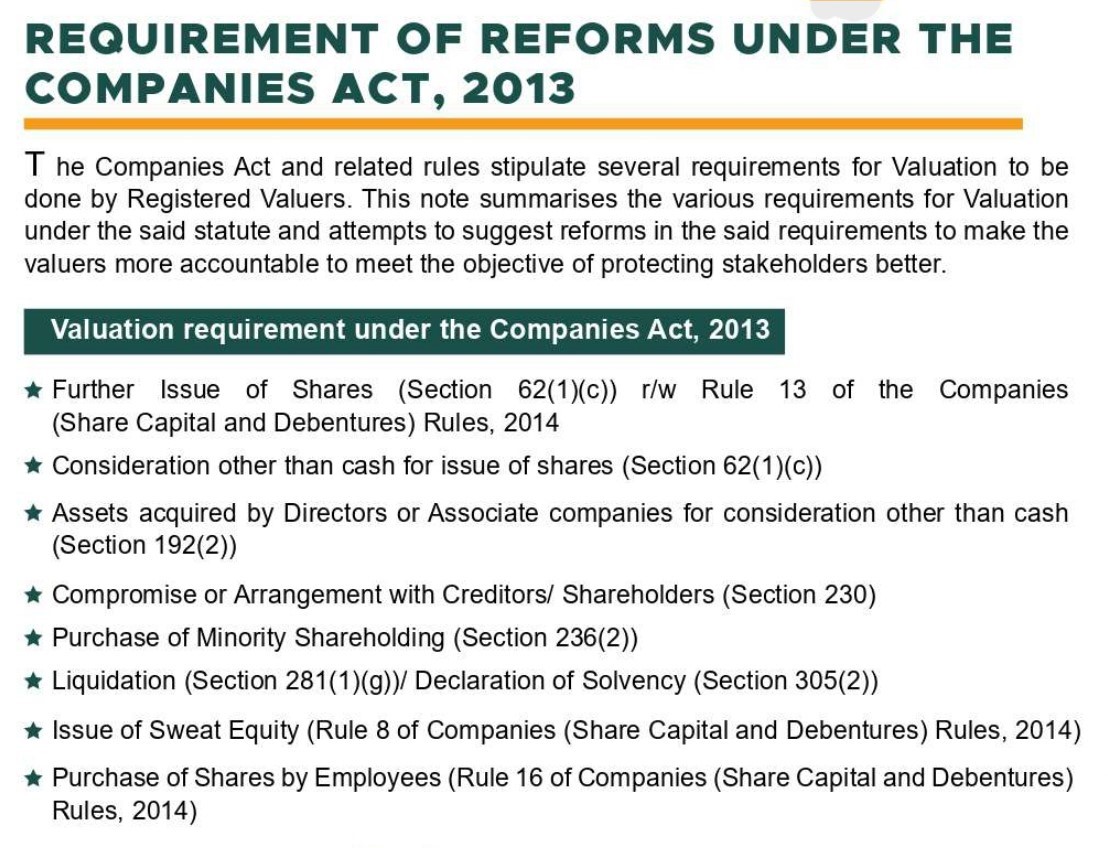
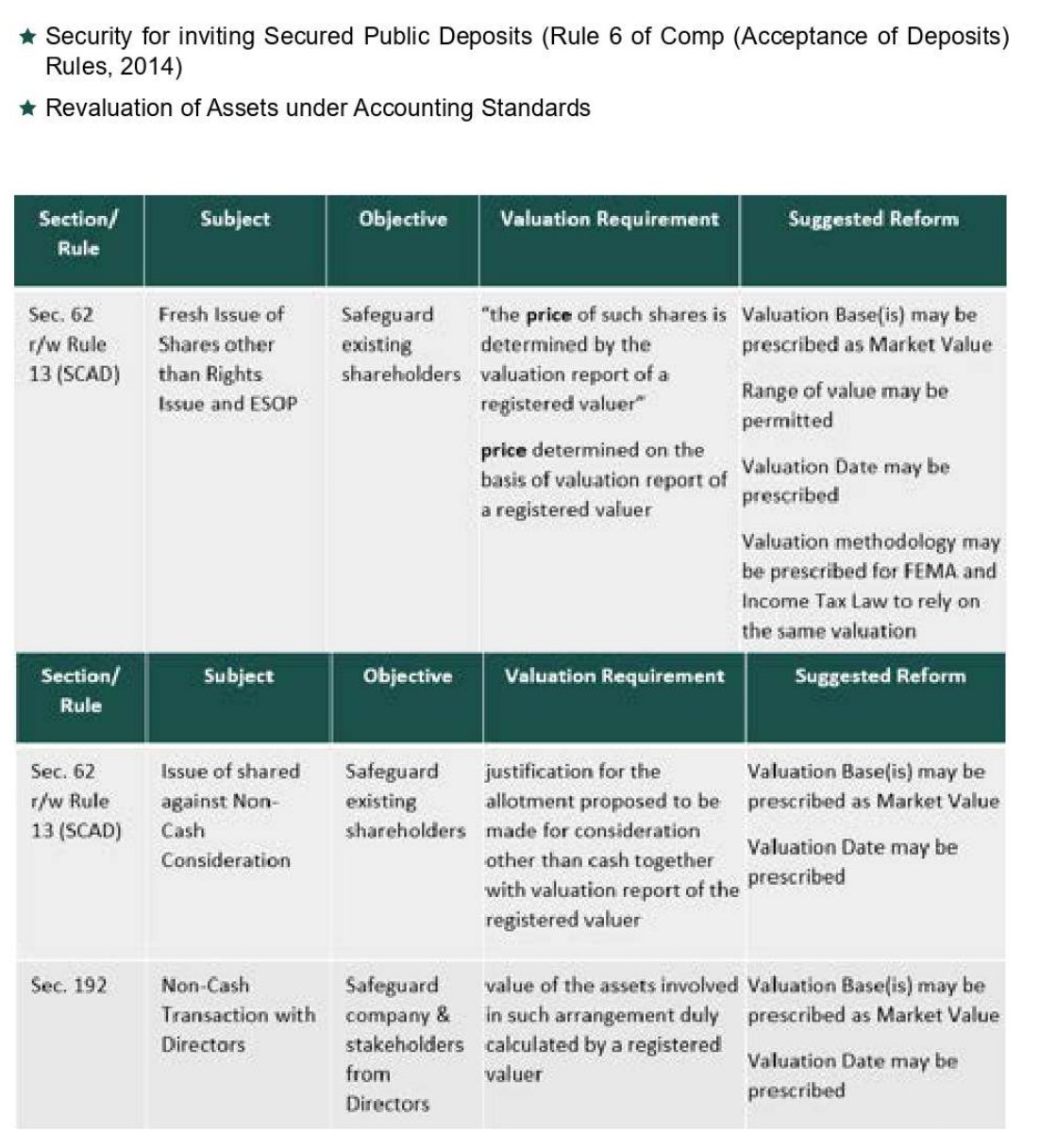
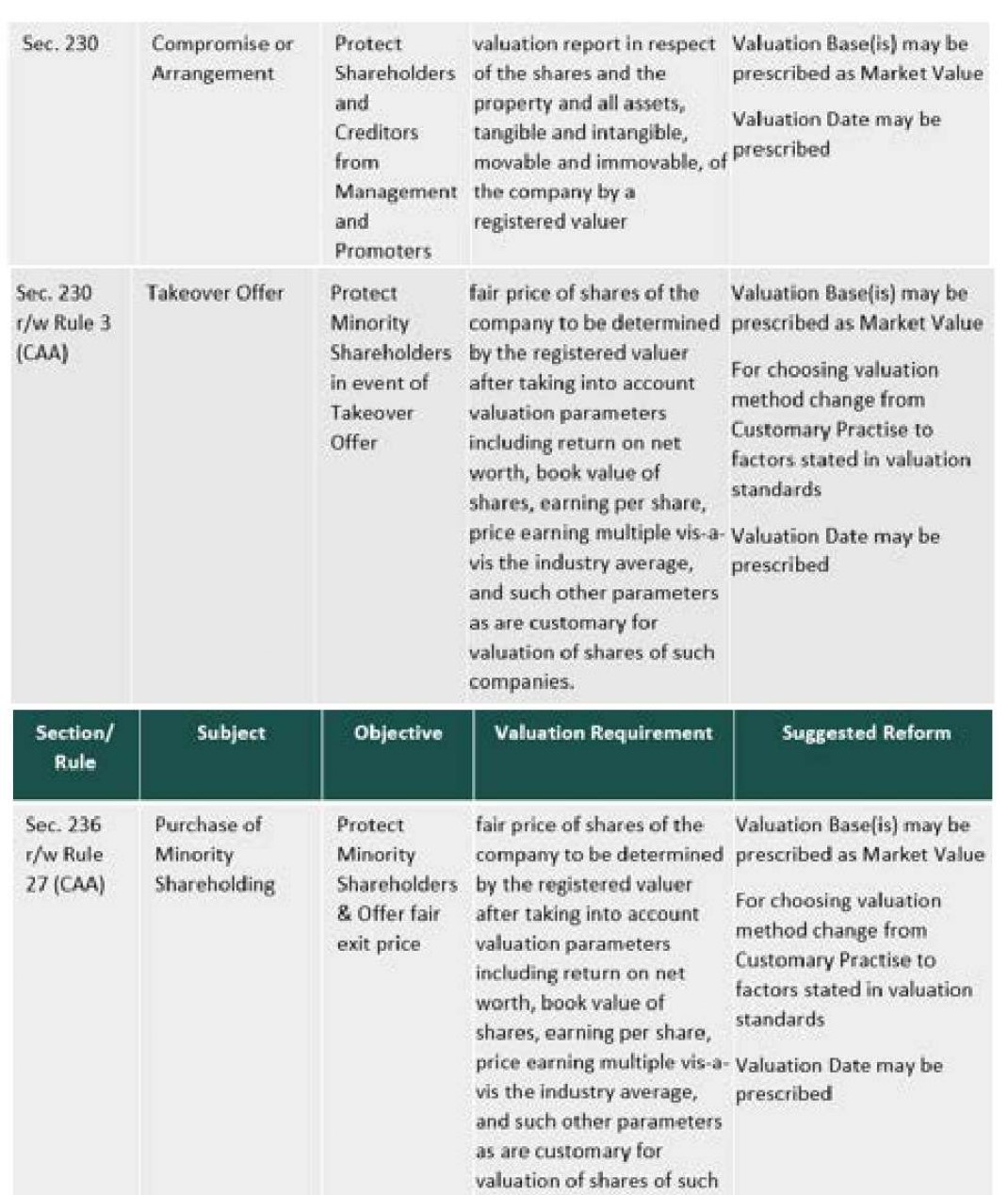
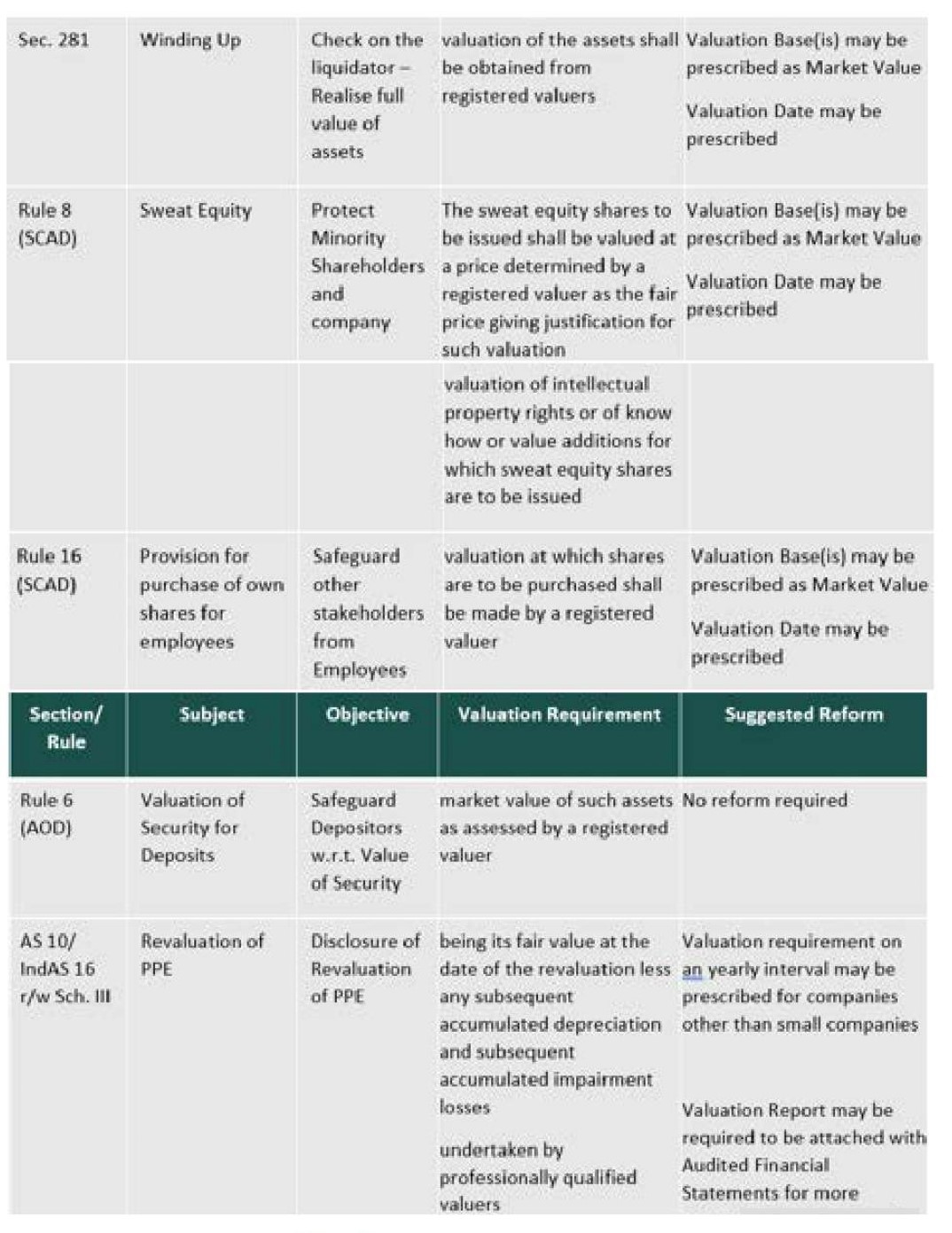
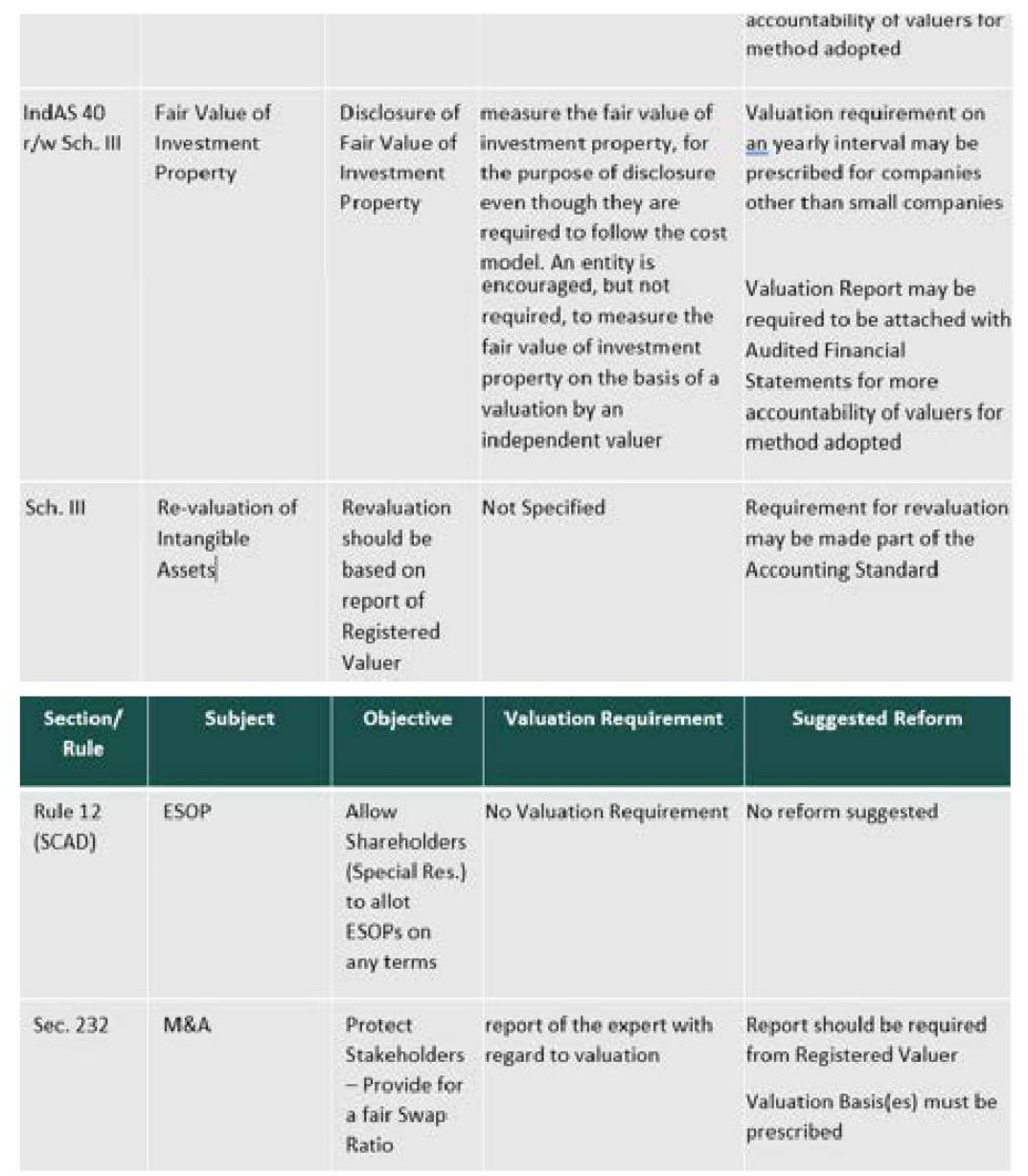
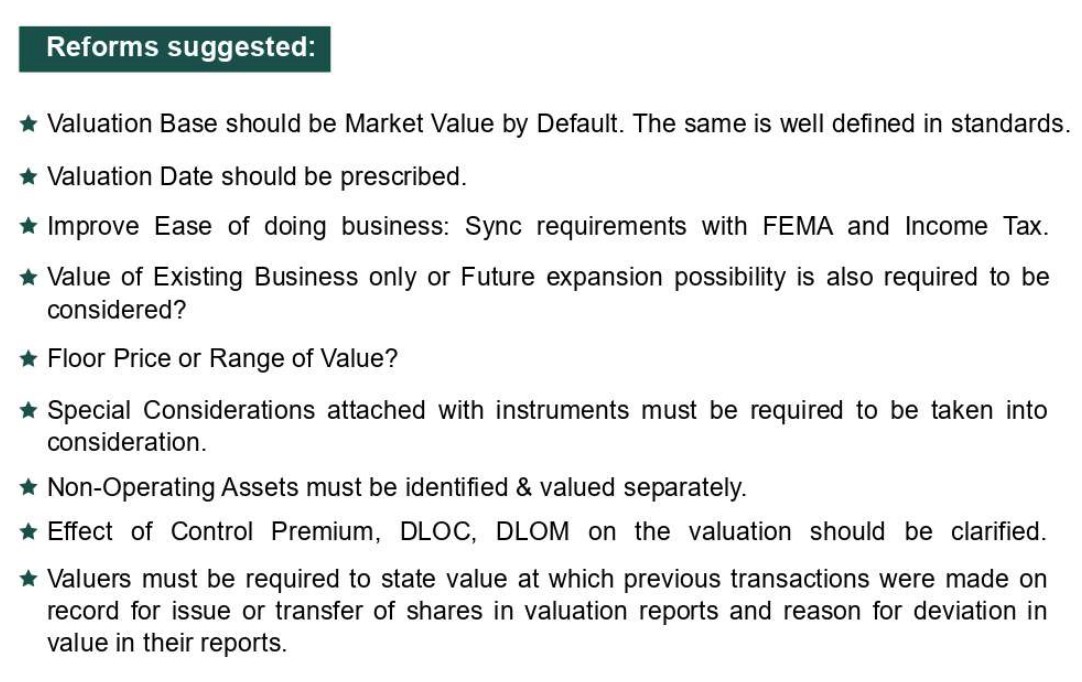
ALSO, Popular Articles:
